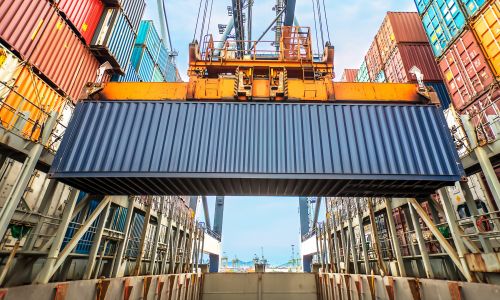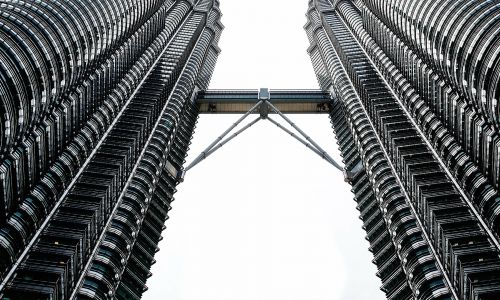Toyota Dealership Management System
- Officially recommended by Toyota Motor
- Highly adaptive to customer business processes
Iflexion created an effective instrument to automate and manage the network of Toyota and Lexus car dealerships.







Context
Business Car Ltd. (a part of Toyota Group) is the largest dealership in Russia selling Toyota and Lexus cars, with 1,500 employees and an annual revenue of $1.1 billion. The company also sells and maintains Toyota industrial machinery, Yamaha motorcycles, accessories and equipment for body repair, and provides car leasing and rent services.
For several years Business Car Ltd. used the TOCIS ERP system to automate the work of its commercial departments, which was developed and supported in-house. However, with time a number of the system’s drawbacks were revealed, such as the high cost of support and implementation in new dealership centers, poor adaptation to changing business processes, high licensing fees for the Oracle tools used in the system, and others.
Besides technical changes, Business Car Ltd. also planned to reengineer their business processes according to Toyota’s requirements. In doing so, they also hoped to optimize work with employees, vendors and customers, and to increase revenues.
In view of this, the company’s top management decided to develop a second version of the ERP system (TOCIS II), which would help in achieving the following goals:
- Optimize the company’s business processes
- Reduce costs on the creation, change, and updating of documentation related to business processes
- Reduce time, effort, and money spent on change requests and the adjustment of the system to new business processes
- Reduce the TCO of the ERP system
- Enable all regional branches to work in one information environment
- Support the Toyota Service Marketing (TSM) methodology
Solution
Iflexion created an effective instrument to automate and manage this network of Toyota and Lexus car dealerships.
The TOCIS II system automates the key business processes of Business Car Ltd.
- The Automobile Sales Center Module is used for retail and wholesale of cars, and customer relationship management
- The Spares Module is used for retail and wholesale of spare parts and accessories, and warehouse control management
- The After Service Module is used to automate the after sales and repair processes.
The TOCIS II system is built with the use of open source solutions, which eliminates any license payments and leads to the reduction of the total cost of ownership.
The solution is highly adaptive to customer business processes thanks to Business Process Execution Language (BPEL), which allows each dealership of the holding to have its own version of business processes.
The system is based on web technologies, which ensure a high level of scalability — new dealerships are added through mere system customization.
The multi-level architecture guarantees a low cost for changes in the system. It includes presentation, business logic and database layers.
Development Process
To achieve the customer’s objectives, Iflexion business analysts investigated and described the business processes of Business Car Ltd. using the most modern methodologies and tools of business process modeling available at the time:
• Business Process Modeling Notation (BPMN)
• Unified Modeling Language (UML)
• Corel iGrafx, Sparx Enterprise Architect
One of the challenges that Iflexion specialists encountered was the absence of a comprehensive description of business processes and the ERP system of the company. Many processes were not formalized, while others were conducted in an outdated way. Years of business experience were not considered, and the recommendations of Toyota Motor Corporation were not utilized.
Iflexion business analysts had a series of meetings and workshops with the managers and domain experts of Business Car Ltd. to describe, regulate, and optimize the company’s business processes. Specialists of consulting companies were engaged to help reengineer the most problem areas.
As a result, Business Car Ltd. received a comprehensive description of optimized business processes, which included a large number of models (charts) and associated documentation.
More than 200 business processes were described, including over 4,000 business activities subject to automation. The description:
- Regulates the work of the company’s employees
- Is a business process change management tool
- Serves as the basis for requirements for the new TOCIS II ERP system
Technologies
TOCIS II is based on the JavaEE platform with the use of a great number of Java technologies, such as JPA, EJB, JAX-WS, BPEL, JSF (RichFaces & Ajax4JSF), etc.
The technical realization is a client-server application that includes a thin web client and server-side, and is built as a traditional multi-tier model. The architecture includes the database, business logic and presentation layers. The Business Process Execution Language (BPEL) was used as a means of creating business processes, which greatly increased the changeability of the system business logic.
The environment in which TOCIS II is deployed includes the following:
• Glassfish as the application server for JavaEE
• PostgreSQL as the database server
• Additional components OpenESB and BPEL SE to enable business processes
The technology choice was made based on the customer’s requirements (who wanted to reduce the TCO) and on test results (carried out during prototyping)
To provide high performance and stability of the system, TOCIS II can be installed as a cluster (i.e. horizontally scaled). Clustering is done on two levels: the application server level (Glassfish), and the database level (the multi-master replication variant). During clustering of the application server, the user session is replicated, which gives the system much more stability.
To build the most effective requirements management process, a special tool (Borland CaliberRM) was used, which enabled us to significantly decrease the time and effort spent. Optimization was achieved thanks to the systematic registration of requirements, interdependencies control, and the use of a test model and corresponding software.
Customer Benefits
- Meeting requirements of Toyota Service Marketing (TSM)
- Optimal Total Cost of Ownership (TCO)
- Meeting current requirements of Toyota Motors for a dealership management system
- Easy system adaptation to business changes
- Minimum cost of system scaling
Results
The TOCIS II system is officially recommended by Toyota Motor to be implemented on all car dealerships in Russia that sell Toyota and Lexus cars.
Customer Voice


Advanced CRM System for an International Glass Manufacturer
For Leonardo – a succeeding German glass producer - Iflexion implemented a powerful CRM solution, available 24x7 from any part of the world and featuring contacts and time management, e-mail messaging and workspaces customization.


Lightweight ERP: Centralized Workflows & Resource Management
Manufacturing is one of the most resource intensive industries incorporating costly equipment, a great number of employees and business processes. To assist such companies in continuous control over their manufacturing activities, Iflexion implemented a SaaS ERP system.


Innovative Web and Mobile Application for Better Logistics
An innovative vehicles tracking online system — Seven Eye —together with iOS and Android mobile applications provides quick access to the real-time data from the cutting-edge recorders and monitoring solutions.


Custom Java-based Release Management Plug-in for a MMO Gaming Vendor
In order to optimize updates delivery practices of a world’s giant of the gaming industry, Iflexion delivered a turnkey plug-in integrated smoothly into their corporate IT infrastructure and automating the entire release management cycle.


Project Rescue: CRM & Email Integration Accelerating Sales People Productivity
Iflexion helped one of the most successful USA ISVs to accelerate a large-scale project on a CRM + Email fusion system development by rapid team augmentation with top-notch .NET engineers.
